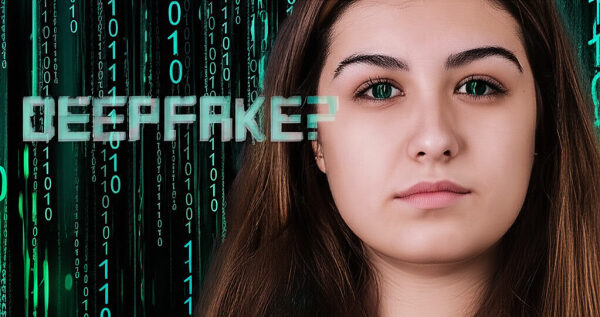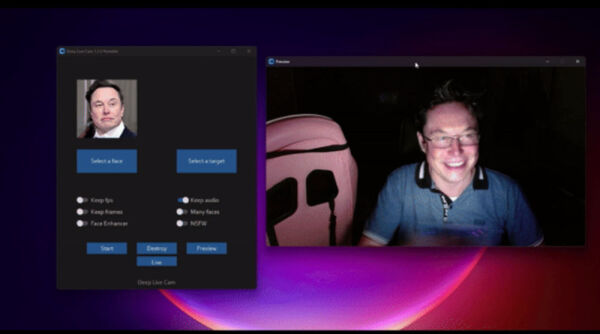[14:16 Fri,21.March 2025 by Thomas Richter] |
DeepFakes started with (porn videos), in which the faces of famous actresses were digitally inserted using software - so the potential for misuse was clear from the start. DeepFakes are videos, photos or voice recordings that have been generated by AI and appear deceptively real, even though they seem to come from a real person.  Such DeepFakes and other misinformation are spread by social media bots, i.e. automated social media accounts that pretend to be humans and are hardly distinguishable from them at first glance. Over a hundred well-known German artists have now launched a petition to ban DeepFakes of real people and manipulative social bots. The non-partisan petition sees democracy threatened by DeepFakes and bots, as they undermine basic trust through fakes that can no longer be distinguished from reality. The initiative does not aim to restrict political content of any kind, but to generally ban this new form of forgery. No distinction is made as to whether politicians such as Friedrich Merz, Alice Weidel, Lars Klingbeil, Katharina Dröge, Heidi Reichinnek or unknown persons are affected. The new government is called upon to go beyond the mere obligation to label AI-generated content, as currently envisaged by the EU, and to ban it. In order to be effective, this ban should be general and absolute and should also include DeepFakes produced for satirical purposes, because it is feared that producers will excuse themselves by saying that DeepFakes are "just satire".  Live DeepFake per Deep-Live-Cam It is demanded that the manufacturers of generative AIs introduce appropriate measures to prevent such DeepFakes, which are made without the consent of the person depicted, and that the intentional dissemination of DeepFakes has criminal consequences. So far, DeepFakes are only punishable if they are classified as insults, slander, defamation or similar. However, the burden of proof lies with the injured parties, and the major social media platforms often react late or inadequately, so that fakes can spread unhindered for too long. DeepFakes in the context of film production would not be affected, as long as actors consent for a fee, as recently agreed by the German Federal Association of Actors e. V. (BFFS) and ver.di with the production alliance. The second demand concerns the ban on manipulative social bots that pretend to be real people. It is feared that debates online will otherwise be drowned in a flood of AI-generated posts from troll factories. The well-known historian Yuval Noah Harari is quoted as saying: "Bots do not enjoy freedom of speech. Banning people from a public platform is a delicate step, and democracies should be very careful with such censorship measures. With a ban on bots, however, it is very simple: it does not violate anyone&s rights because bots have no rights." Thanks to AI, bots can now act in such a way that they can no longer be distinguished from real people in online discussions. Anyone who has enough money and resources can create tens of thousands of "fake people" who spread the desired propaganda online and simply stifle the discussions of real people through their mass and thus destroy the basis of opinion formation in a democracy. The signatories include Marc-Uwe Kling, Sarah Bosetti, Michael "Bully" Herbig, Karoline Herfurth, Oliver Kalkofe, Bjarne Mädel, Walter Moers, Bastian Pastewka, Rocko Schamoni, Saa Staniić, Eckart von Hirschhausen and Bodo Wartke. The petition is online and can be signed by anyone. A big question, even if the petition is successful, will be its enforceability: will the big American or Chinese platforms comply with such a law and quickly delete DeepFakes and ban social bots? deutsche Version dieser Seite: Petition fordert Verbot von DeepFakes von echten Menschen |





